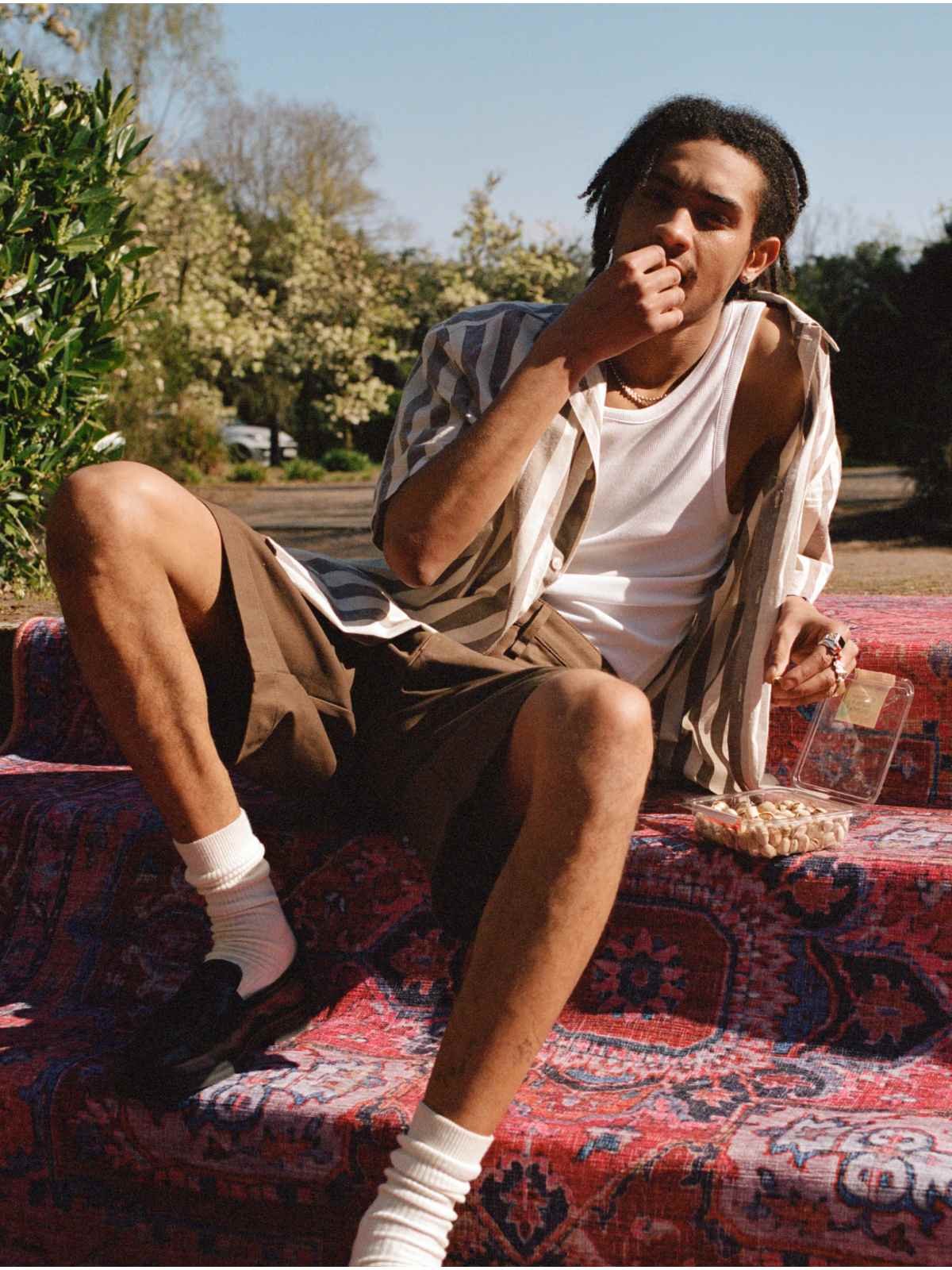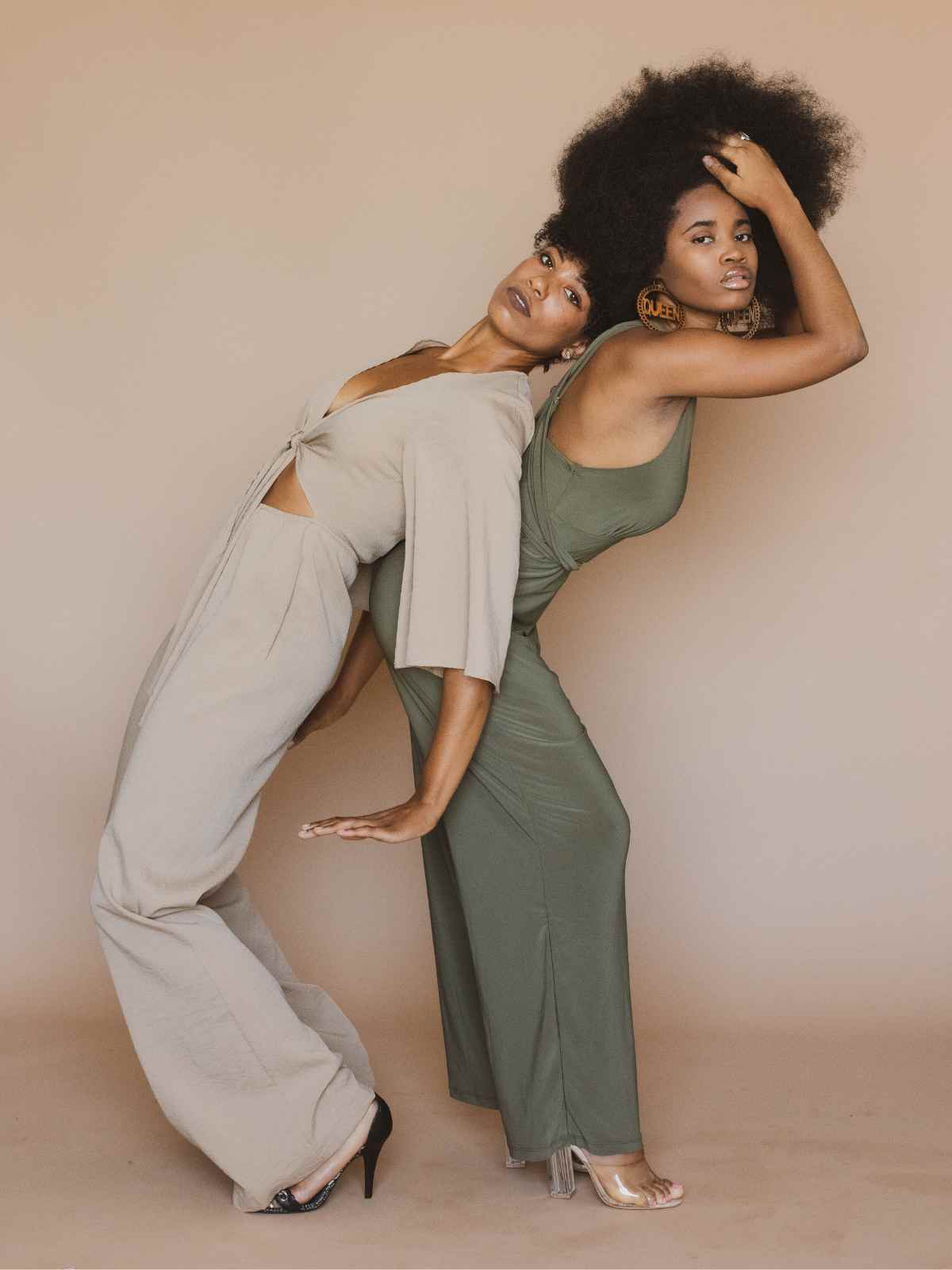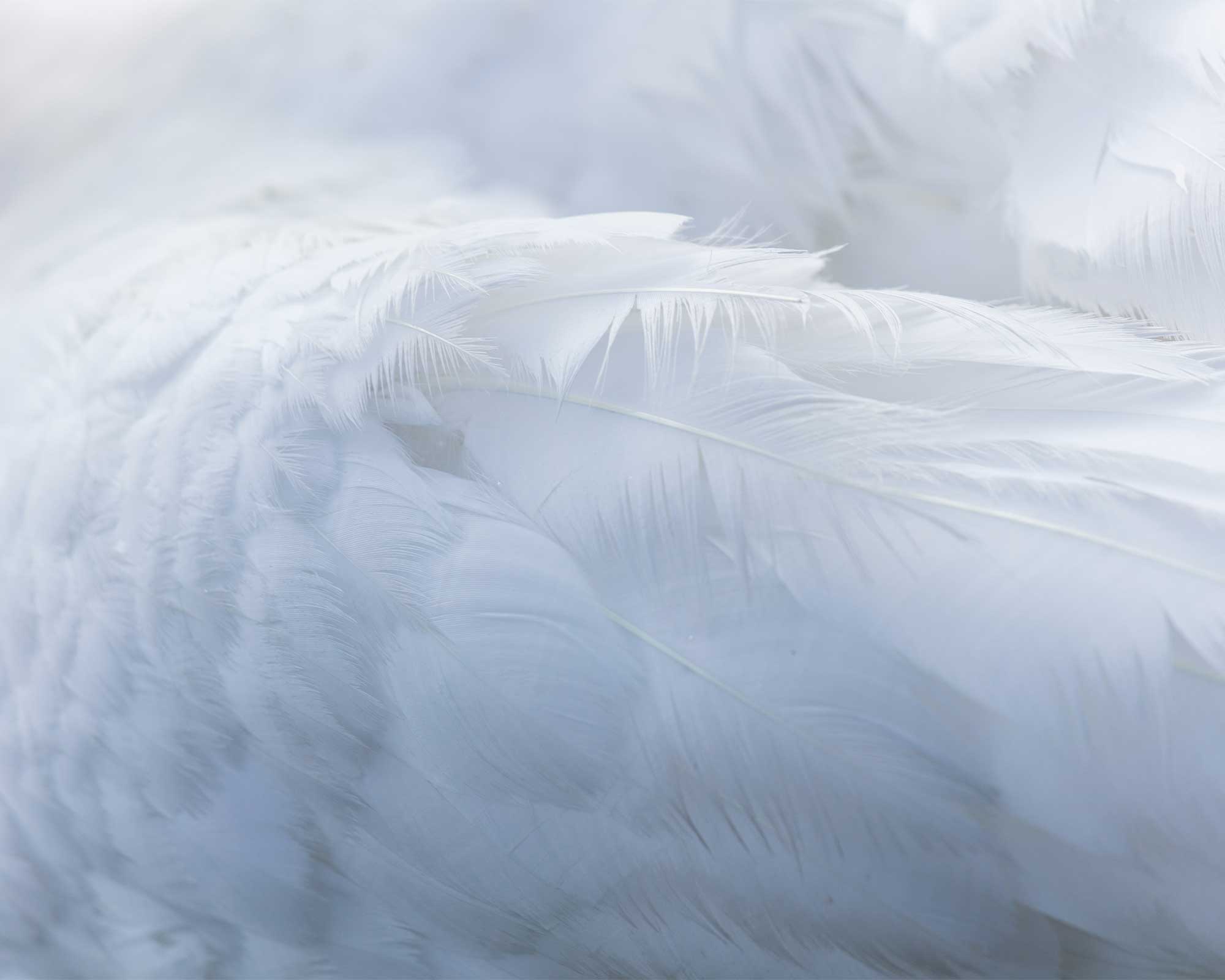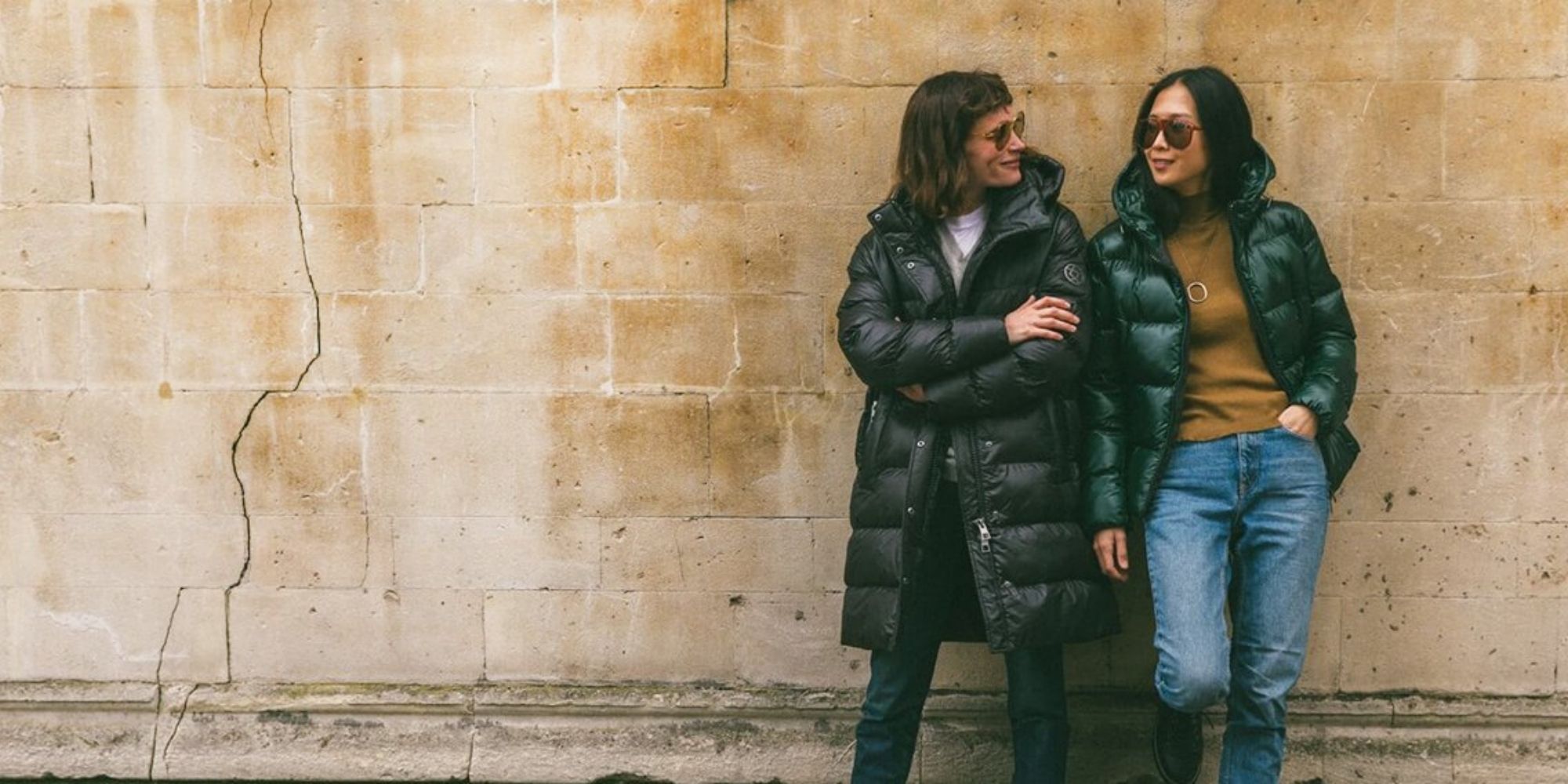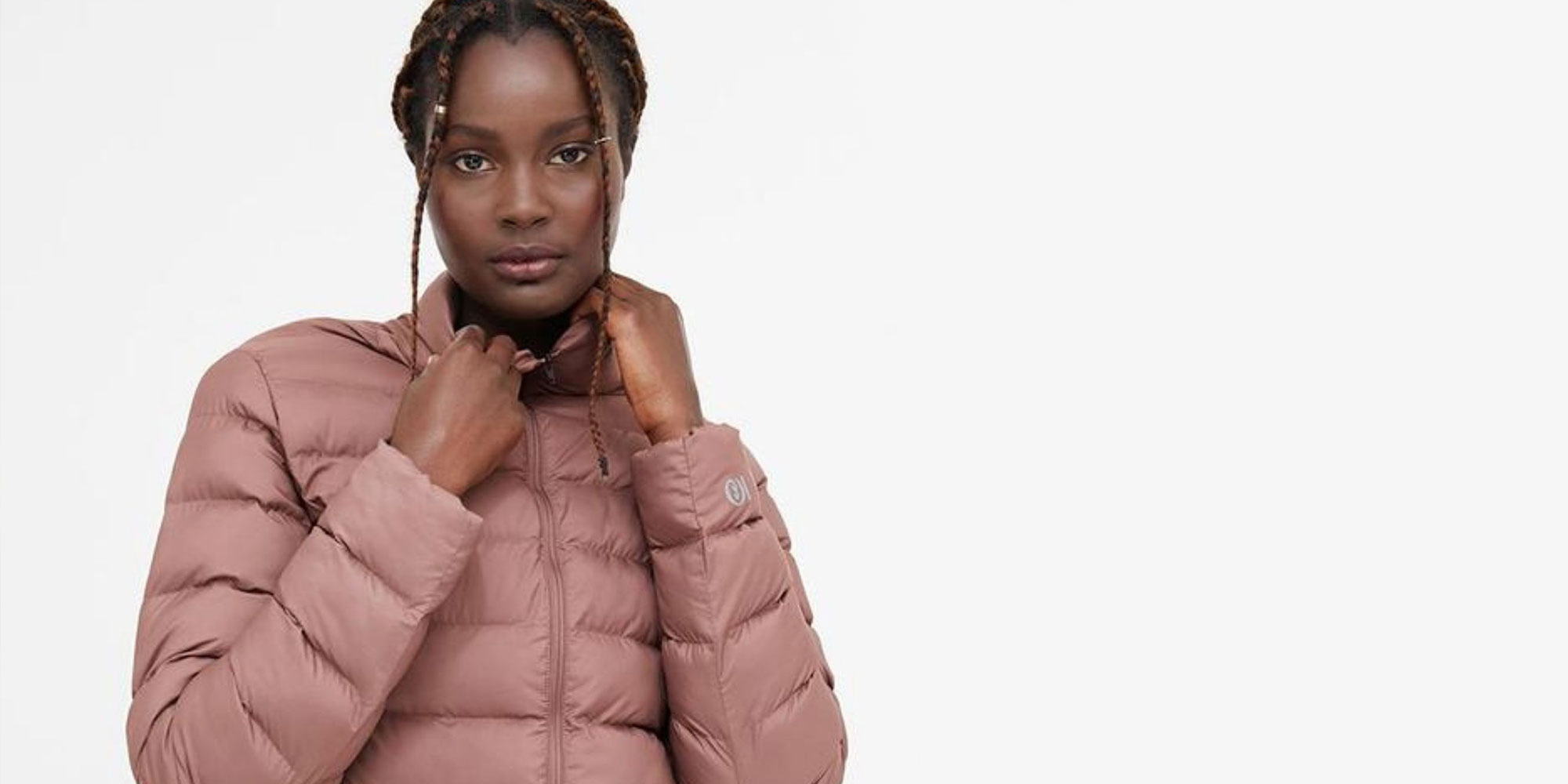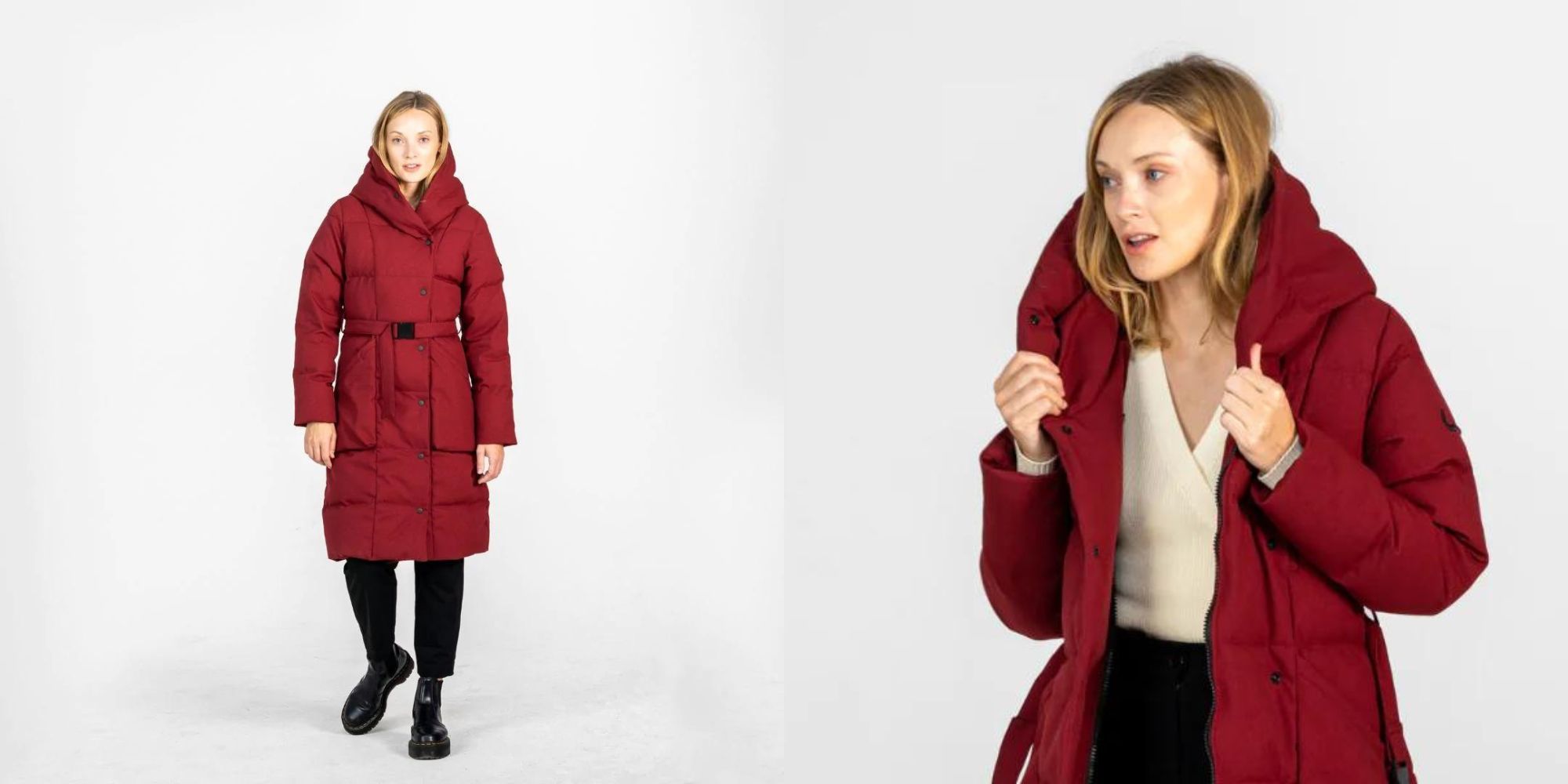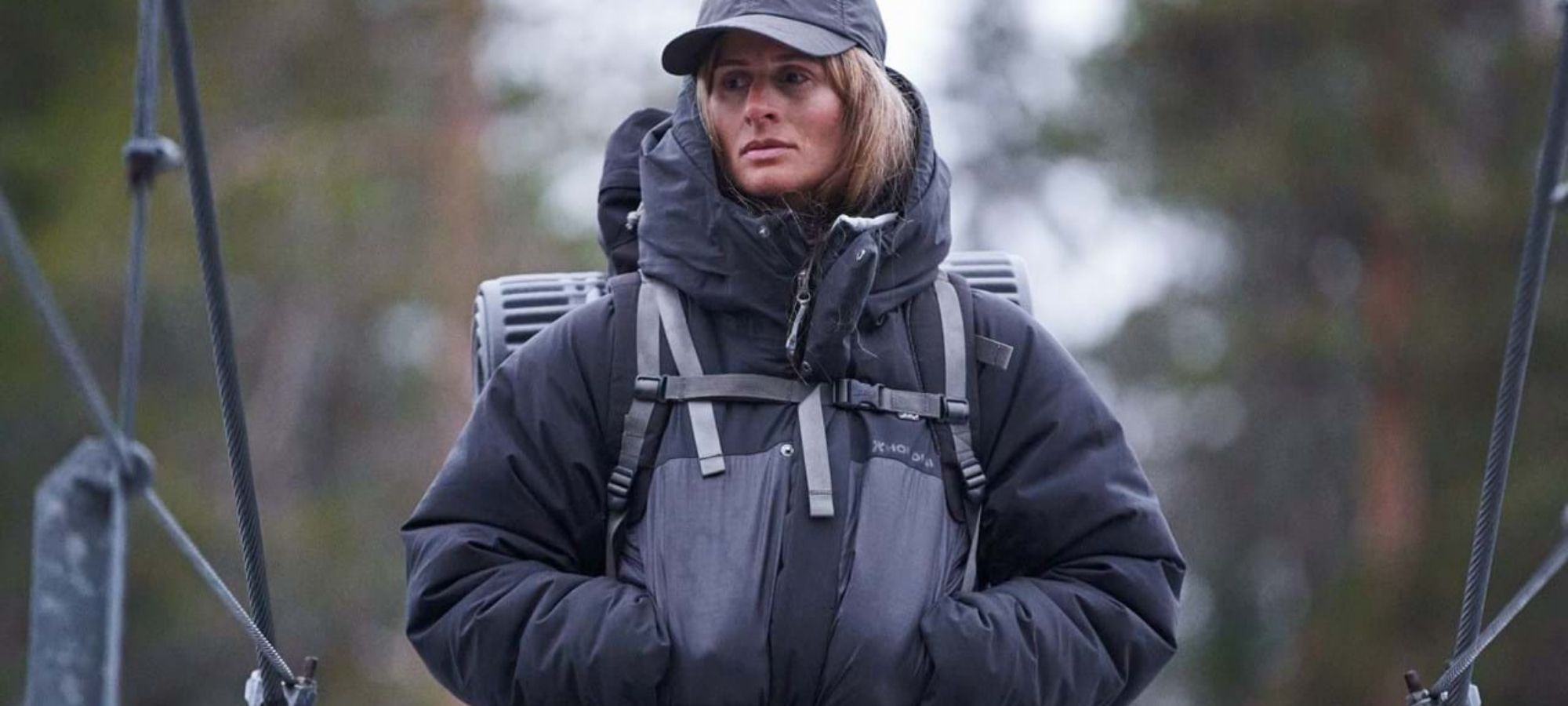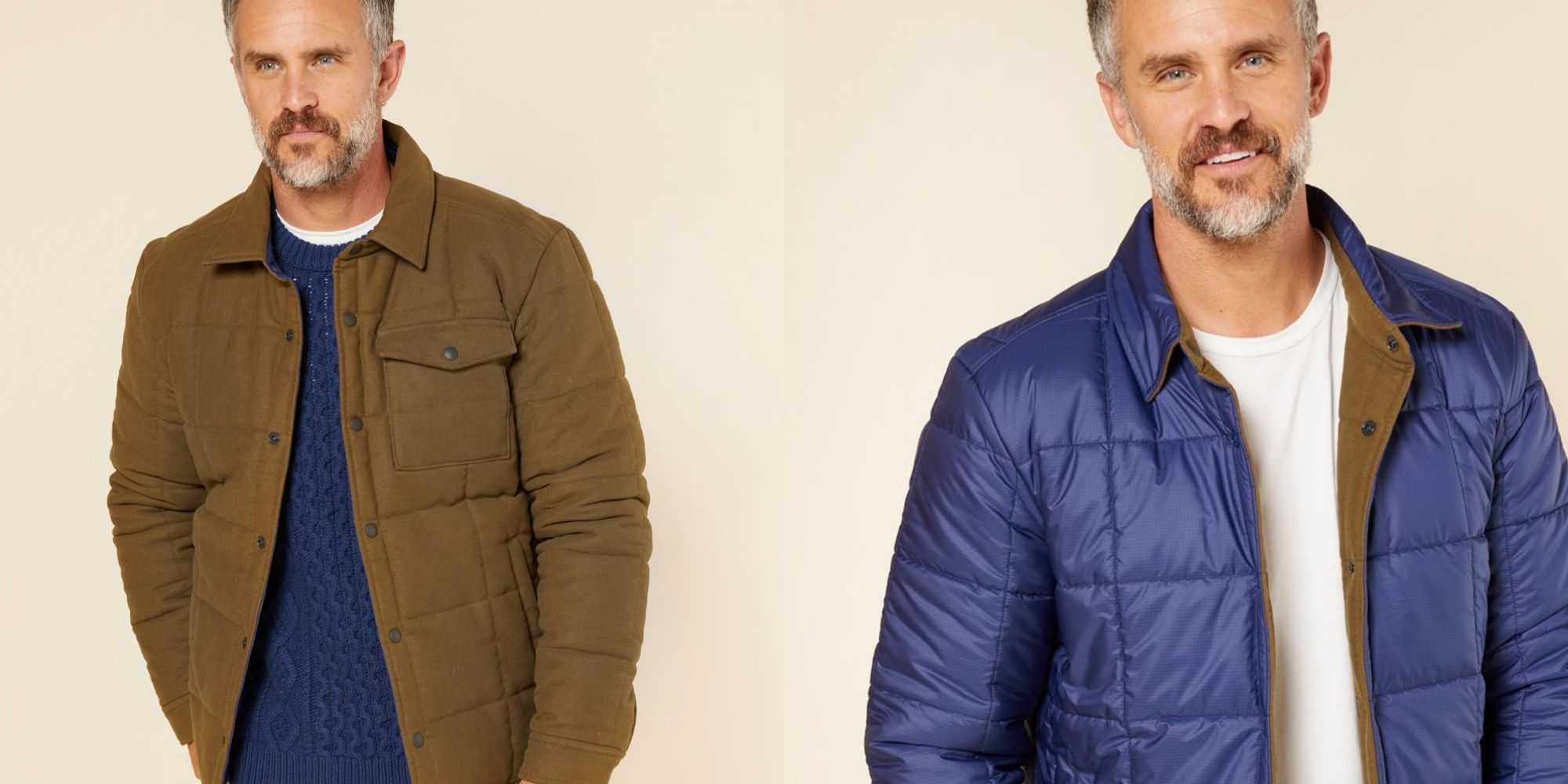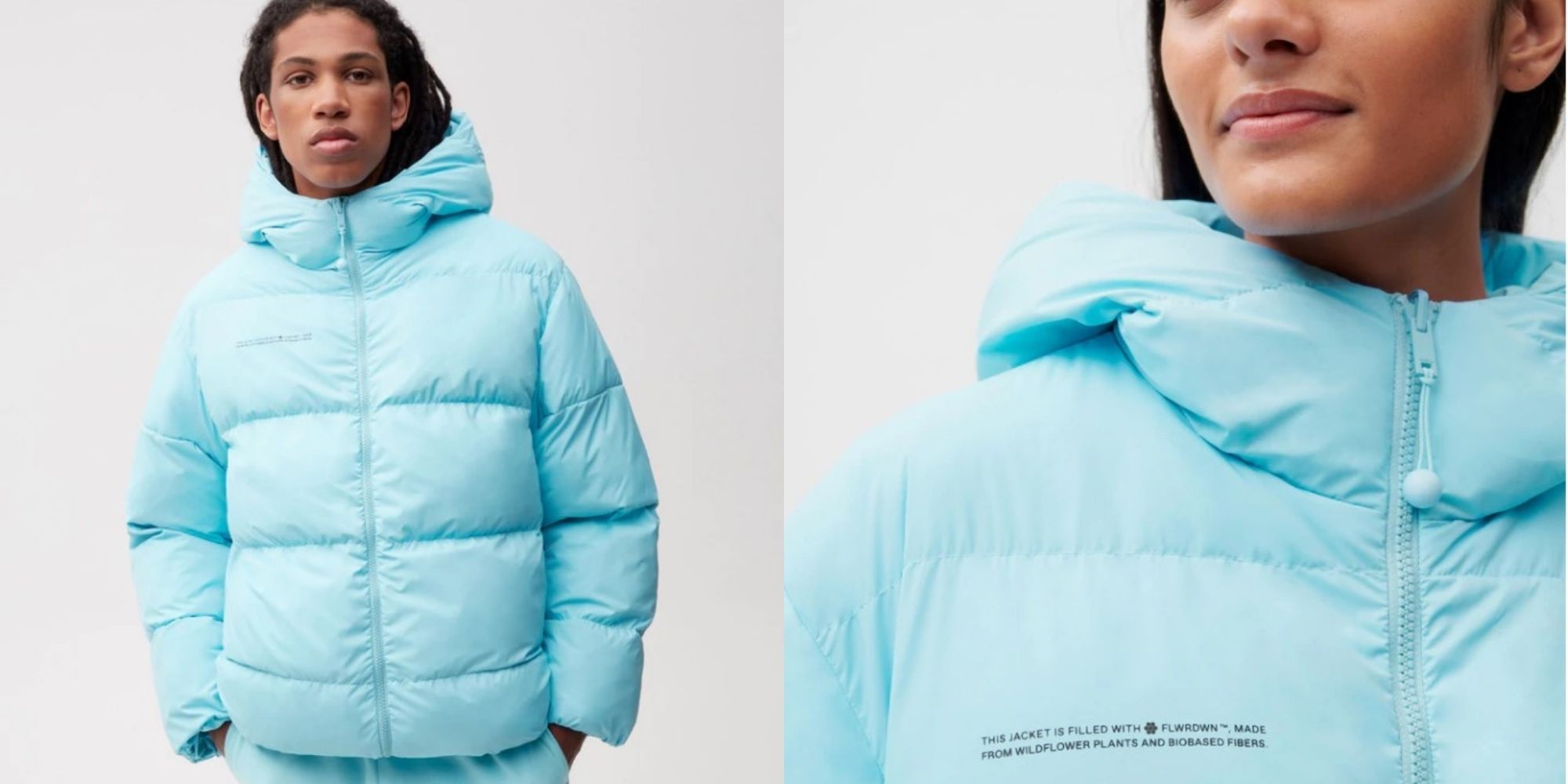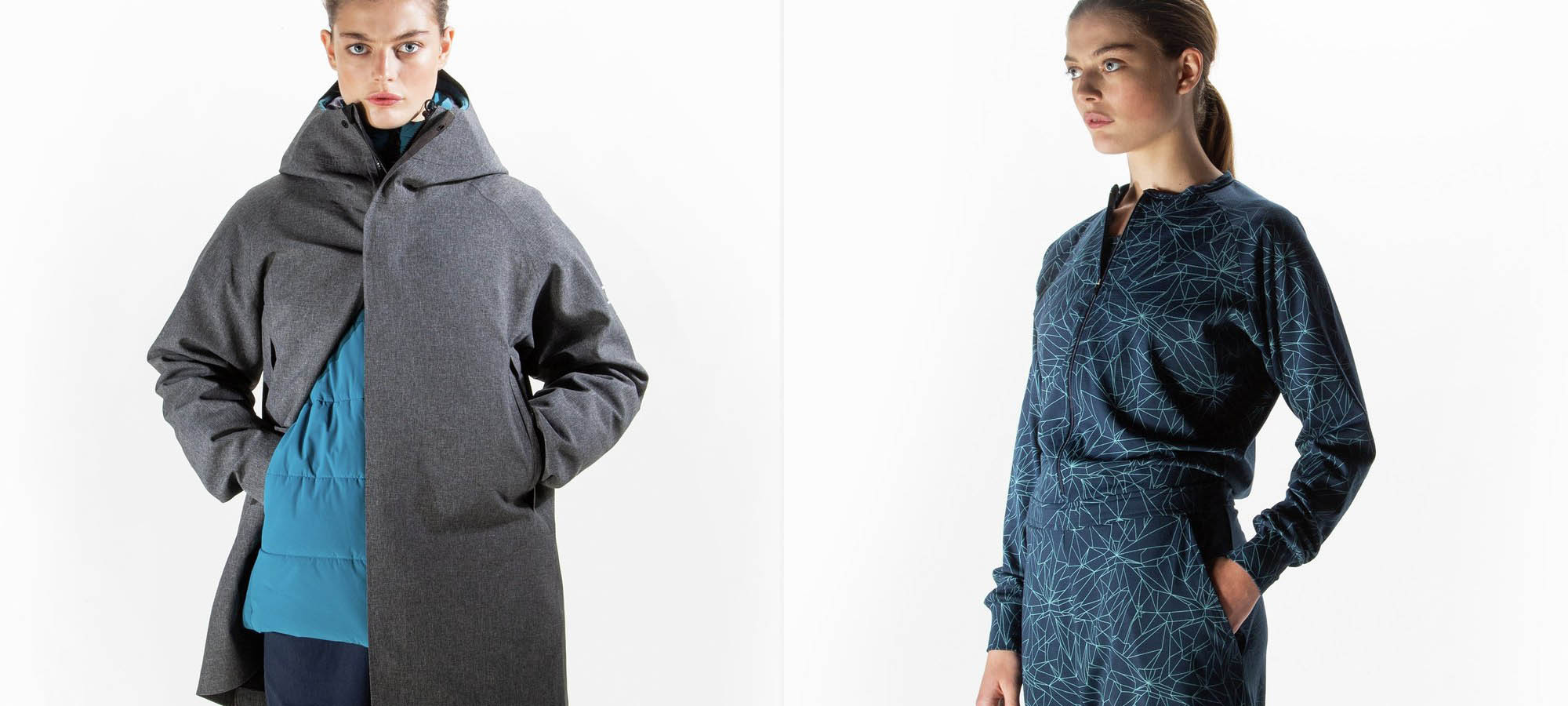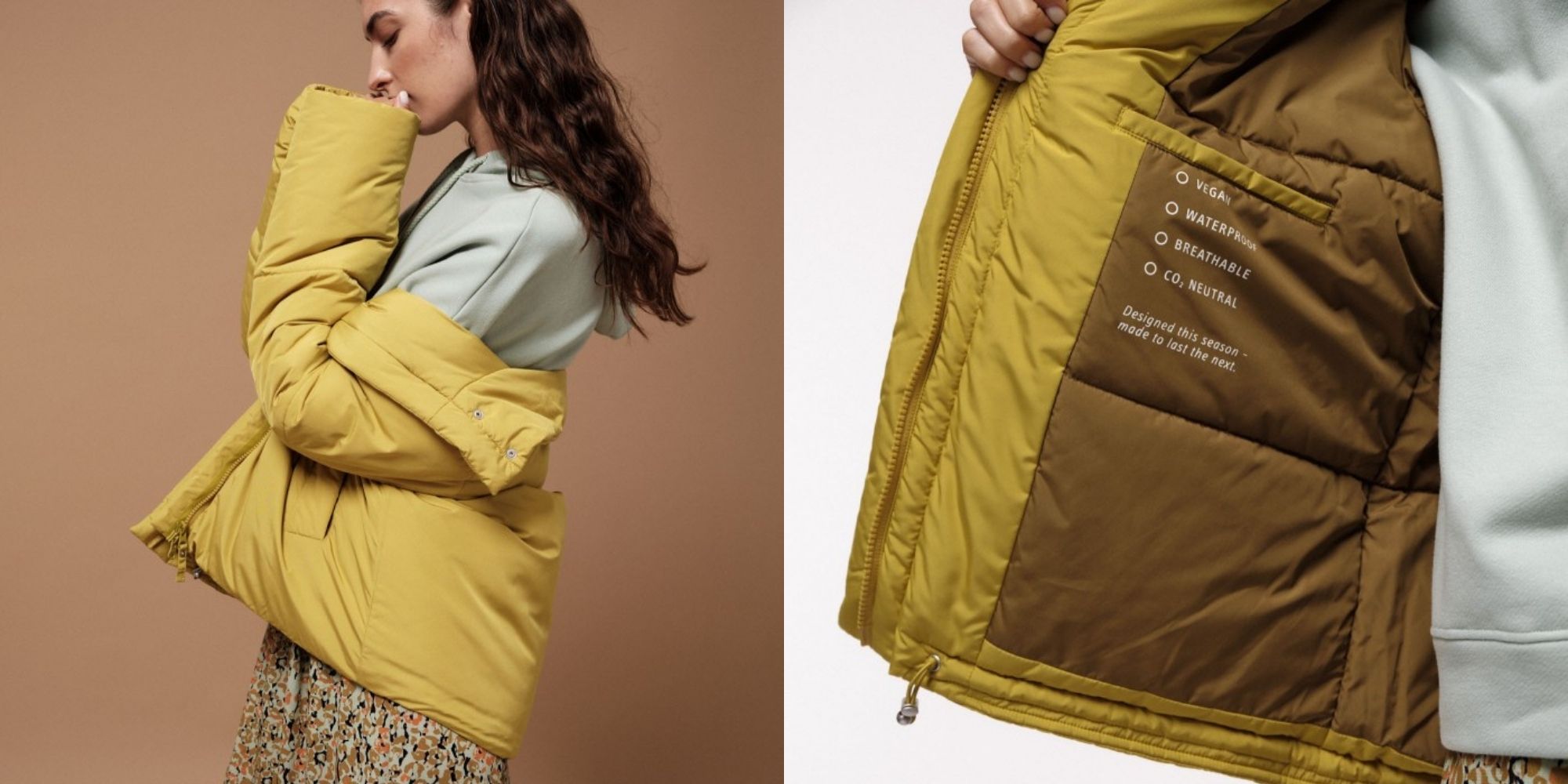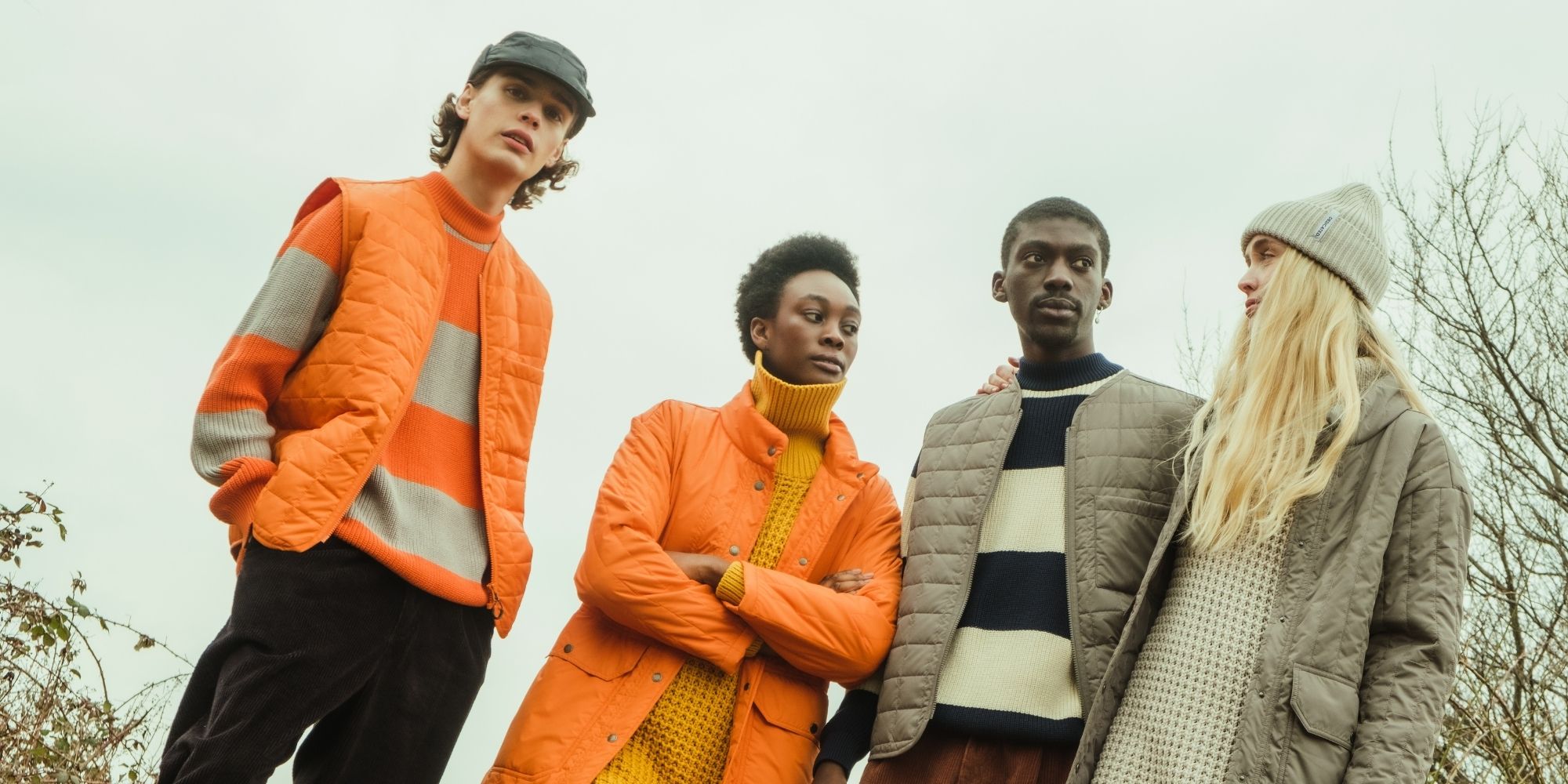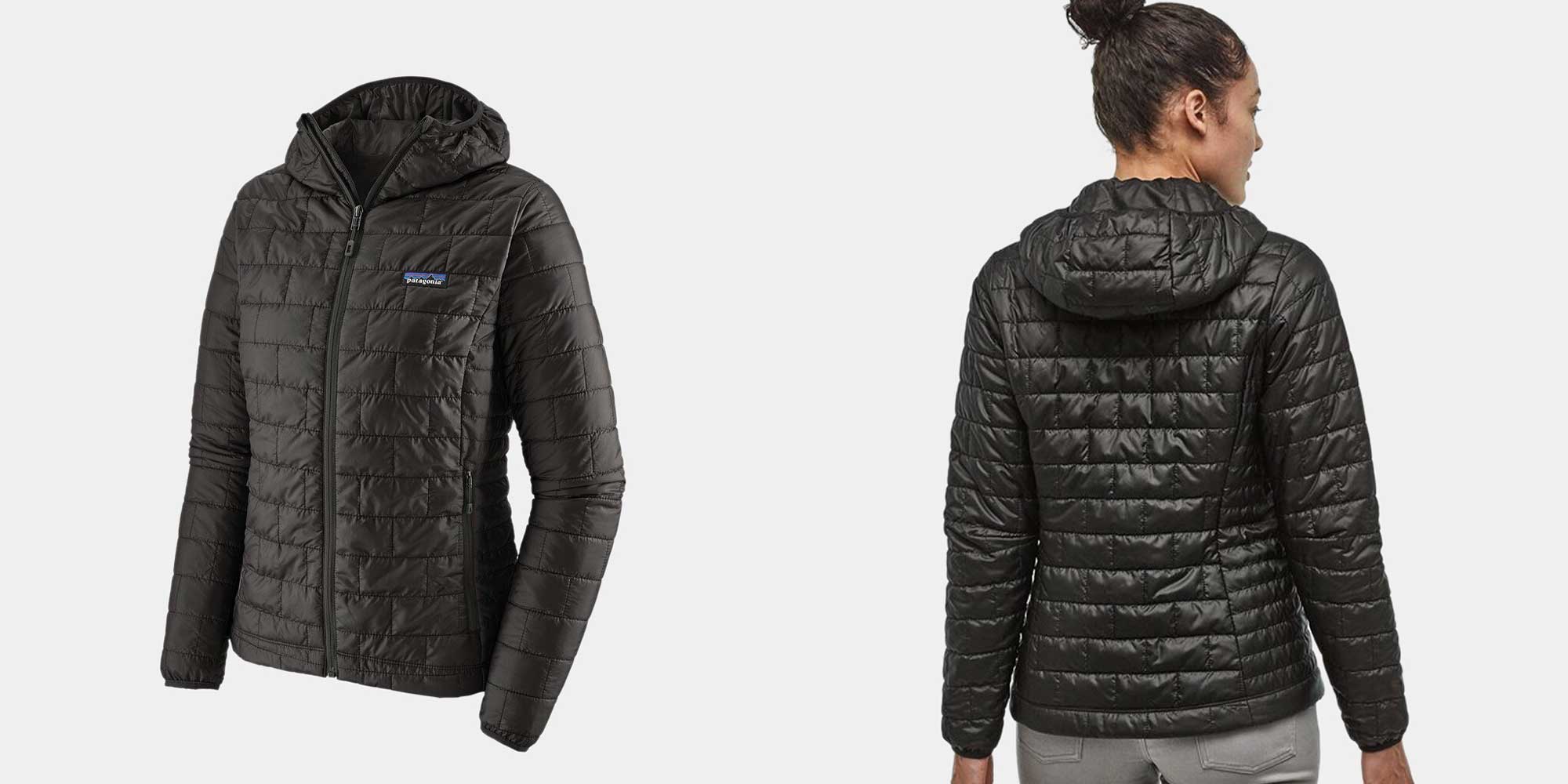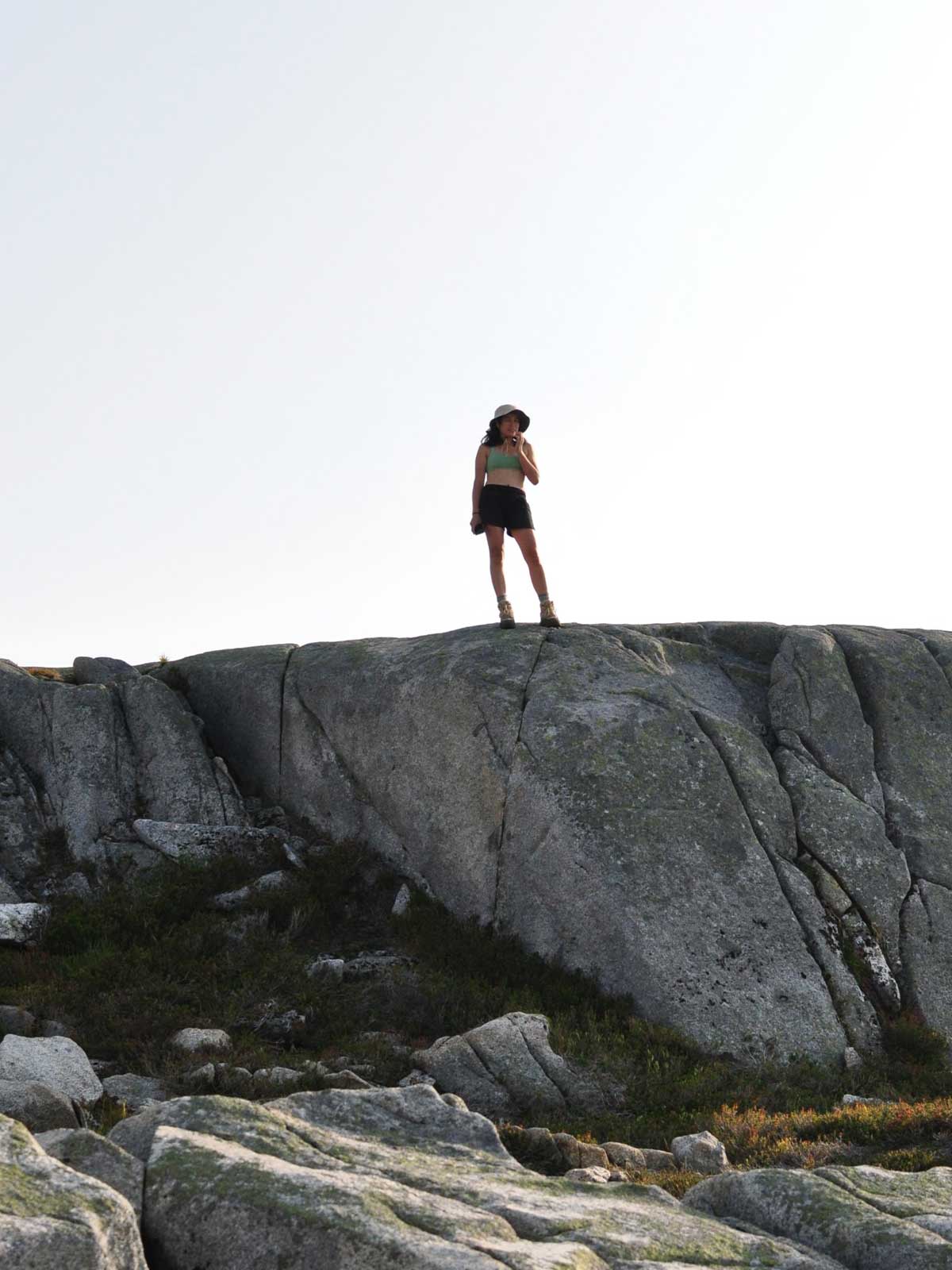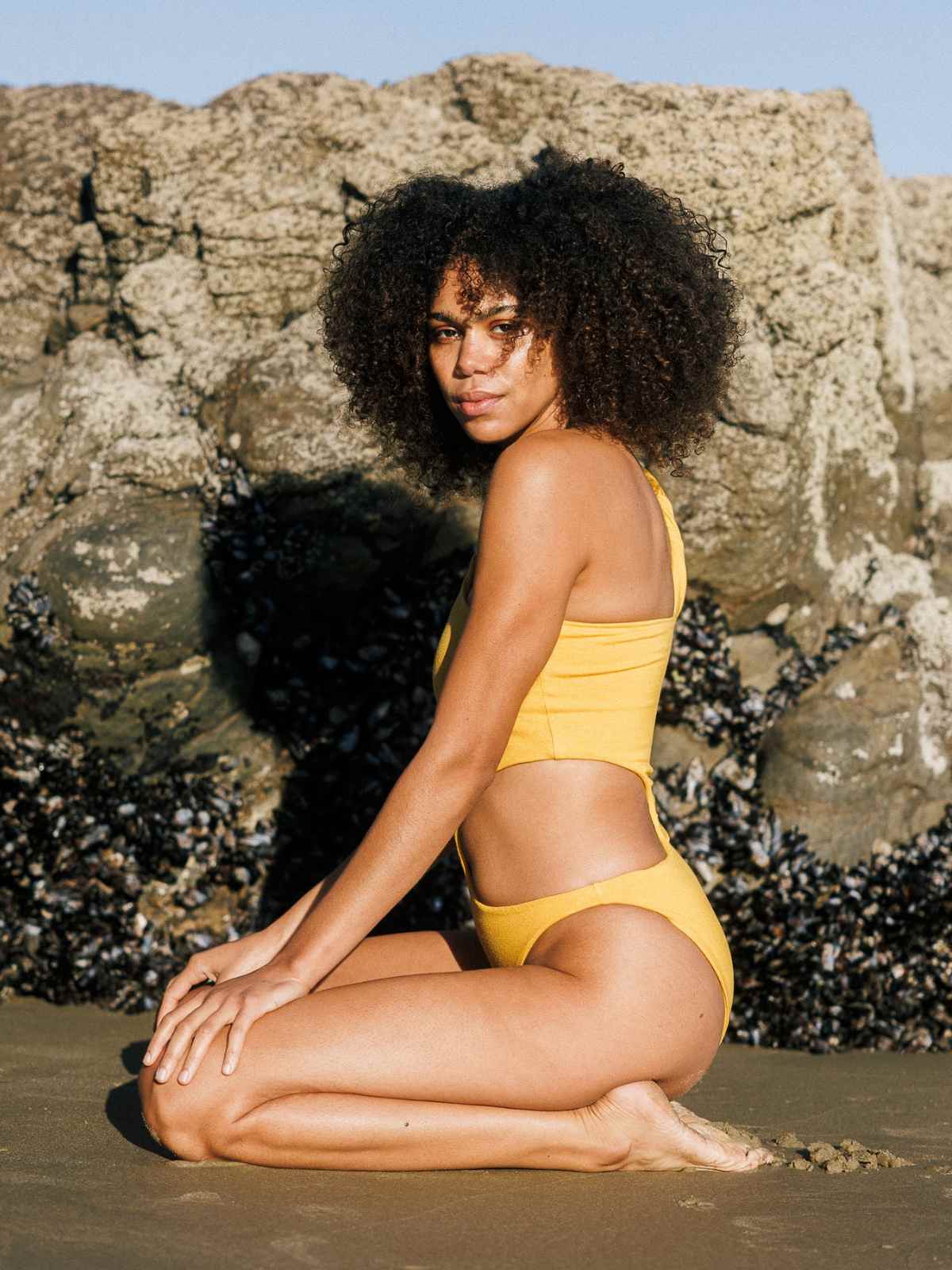Our editors curate highly rated brands that are first assessed by our rigorous ratings system. Buying through our links may earn us a commission—supporting the work we do. Learn more.
Down feather is used to provide warmth in everything from puffer jackets to quilts, comforters, and duvets, but it also perpetuates animal cruelty. Here’s what you need to know about down and whether it can be sustainable.
Down: a topic that ruffles feathers
Feathers are packed into puffer jackets and winter coats, but since you can’t see them, it’s easy to forget they’re there and all the ethical questions that go along with this animal-derived material. But why do people even wear down feathers at all? Well, they’re very warm, and until recently there’ve been few alternatives. The feathers are also light, which makes them perfect for layering.
Down feather usually comes from ducks and geese, which raises questions about how these animals are treated in the process. And while down is biodegradable, there’s a lot more to its sustainability that we need to consider, especially because, like so many materials used in fashion, down’s supply chain is complex and comes with a host of environmental costs and ethical issues.
The down industry has had its fair share of criticism and controversy thanks to one issue in particular: live plucking. Sometimes, feathers are plucked from ducks’ and geese’s bodies while they’re fully conscious. Their feathers are then sold, and when the new feathers grow back, the animals are plucked again. This process is as painful as it sounds and can cause skin tears, severe injury, and even death.
Impact on animals
Let’s get straight to it—the down industry is a slaughter industry.
In the words of the International Down and Feather Bureau, “there are no farms that raise ducks and geese purely for the procurement of down and feather”. This fact doesn’t mean feathers are a worthless by-product of the meat industry, but—as with leather—down is a valuable co-product of meat production, bringing significant profit. The global down and feather market value continues to increase, with the industry estimated to be worth between $1.7bn USD and $7.5bn USD, depending on the source. And each year, an unimaginable 3.3 billion ducks are estimated to be slaughtered across the globe—that’s 9 million each day.
Ducks and geese are thinking and feeling individuals just like any other animals—humans included. Ducks bob their heads around when they’re excited, and they’re highly social. Meanwhile, geese choose life partners and even mourn their deaths.
Sadly, even the Responsible Down Standard and other supposedly “ethical” down certifications do not prevent ducks and geese from being slaughtered. While there is merit in attempting to reduce the amount of suffering involved in an animal’s life, it’s important to remember that commercial systems that treat animals as means to profit will always include a level of cruelty and eventual killing.
Let’s explore some of the most concerning aspects of the down industry.
False claims of cruelty-free feather collection
Many people choose to avoid down from birds who have been plucked alive given how much suffering this causes. However, it’s been found that even Responsible Down Standard certified suppliers and companies—which assure no live-plucking—have secretly continued to live-pluck ducks and geese on farms. Suppliers have been recorded admitting to lying for the sake of the profit: “nobody dares to buy it if you say it’s live-plucked“.
Similarly, some farms and fashion brands claim feathers are “collected” during birds’ natural moulting process each year. It’s argued that feathers loosen during moulting so feather collection is a pain-free process. Unfortunately, all birds on a farm don’t moult simultaneously, so there’s no way to ensure many birds aren’t still being painfully plucked.
Foie gras, force-feeding, and feather down
Even if down isn’t sourced from ducks and geese who have been plucked alive, it can come from birds who have lived through suffering by way of foie gras. Foie gras has been banned in dozens of countries, and most recently, in the city of New York. Foie gras means “fat liver” in French and is a paste made from the livers of ducks and geese who have been confined to cages and force-fed fatty food with a pipe that is pushed down their throat. This process can grow a duck’s liver up to ten times its normal size, and after 15 weeks of this pain and suffering, ducks are slaughtered.
Whether raised for meat or foie gras, ducks are killed at only a few weeks or months old, despite naturally living for over a decade. While we won’t get into the details, the slaughter of ducks is inherently violent.
Feather down from factory farms
The vast majority of ducks are factory farmed, as with most animals reared for production worldwide. Ducks and geese are aquatic birds, and if you’ve ever seen these birds while out walking, you’ll know that they spend the vast majority of their time in or near water. Despite this, ducks on factory farms—packed into sheds full of hundreds or thousands of other birds—are largely denied surface water to float in, and there’s some suggestion that this can cause foot and leg problems, though the RSPCA notes that there isn’t enough research into this area for ducks and geese.
The confinement ducks and geese face, cramping them in close quarters with so many other birds, can also result in psychological harm and related aggression between birds. Sometimes, factory farms cut or burn the ends of birds’ beaks off to avoid injuries when fighting rather than addressing the root cause.
A lack of animal protection laws
Down predominantly comes from nations with no or insufficient laws to prohibit violence against animals, especially farmed animals. Across the globe, animal laws are far worse than you might assume. China, where the vast majority of down is sourced, has no national laws prohibiting violence against animals. Similarly, while nations including Australia, America, and the United Kingdom have animal protection laws, they essentially exempt farmed animals to protect industry interest. In other words, cruelty to animals like ducks and geese is legal, so long as it can be deemed “necessary” to an industry’s profits—like the industry that sells feather down, which goes into jackets and coats.
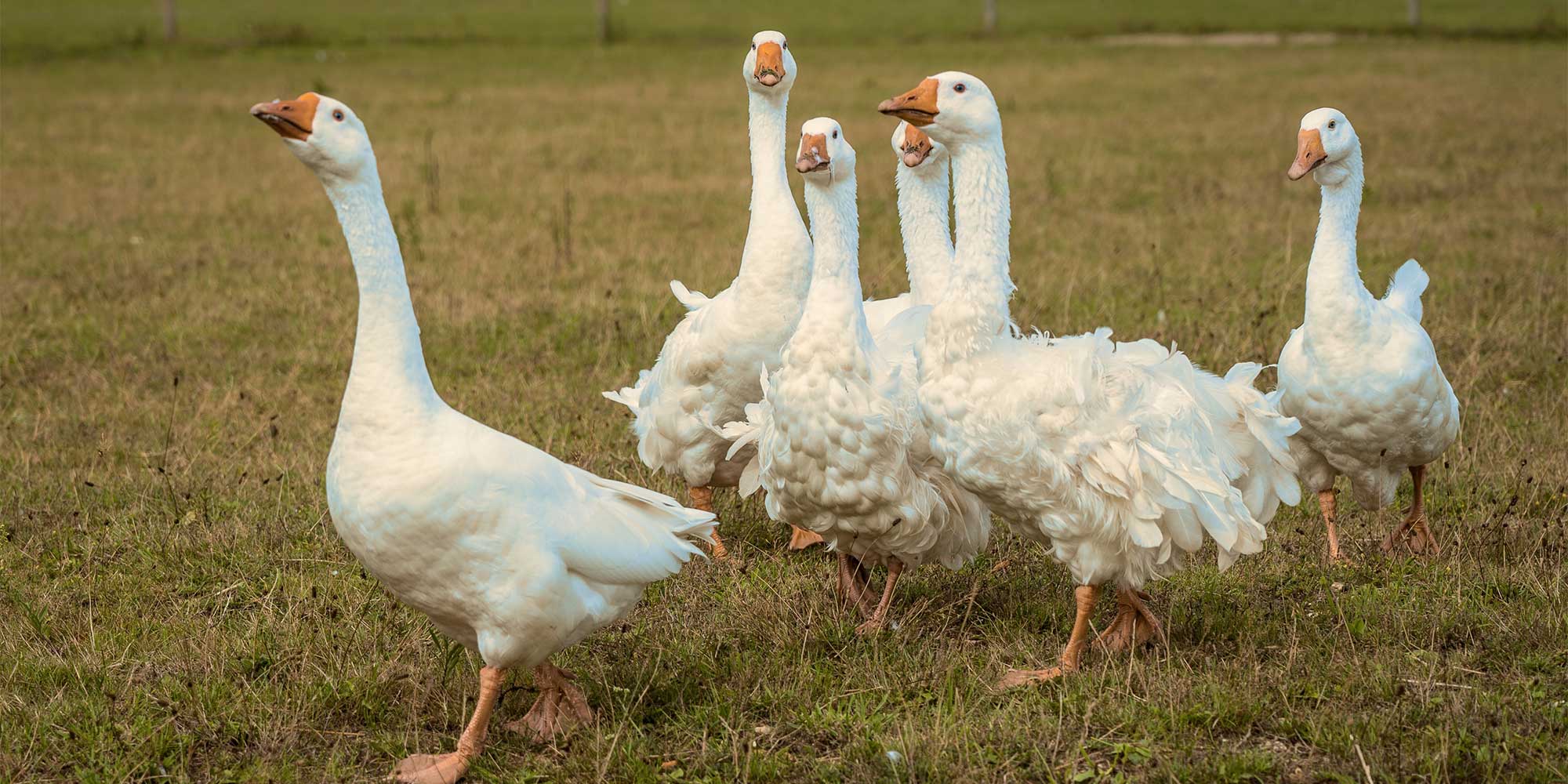
Impact on the planet
Not only does down production harm ducks and geese themselves, but the planet is also impacted. While down is technically biodegradable—meaning it will break down when discarded, it’s not quite that simple.
Reduced biodegradability
Here’s the thing: while down may be biodegradable, feathers are always kept inside of jackets and coats, and normally, this outer shell is not made from a material that will biodegrade easily or safely. Even if a puffer jacket is made from recycled polyester, making it slightly more sustainable, this synthetic acts as a barrier between the outside world and the down—meaning it won’t be able to effectively biodegrade. The polyester of a synthetic jacket filled with down can take as long as 200 years to break down, so if we want to talk about biodegradability in fashion, we need to consider garments in full.
Inefficient animal rearing
As with all animal agricultural systems, rearing ducks is inefficient, and that means you need to put more into the system that aims to produce feathers and meat than you get out of it. When we factory farm birds, it’s not only the land the farm stands on that’s being used up, but all of the land used to grow monoculture cereal crops that ducks and geese eat, too. Past estimates have suggested that 36% of all crop calories grown worldwide go directly to farmed animals, but if we moved away from a reliance on animal agriculture, we could produce more with less land and allow more land to be rewilded, assisting in biodiversity restoration and carbon sequestration.
Eutrophication
Factory farms have another significant impact on the planet, called eutrophication. Eutrophication is a process in which a body of water becomes too rich in particular nutrients, resulting in the dense growth of blue-green algae that can suffocate everything underneath the water’s surface. This eutrophication can result in dead zones where aquatic life cannot survive. Runoff from factory farms like those confining ducks and geese is full of phosphorus-rich faeces, which often results in eutrophication of nearby waterways.
Water worries
Water surrounding slaughterhouses—not just factory farms—is also put at risk by the down industry. When ducks and geese are slaughtered and later plucked of their feathers, it often occurs in abattoirs that release massive amounts of wastewater. The organic matter in this wastewater is not only bad for the planet but for surrounding (usually lower-socioeconomic) communities, too.
Can you buy ethical down feathers?
All down comes from ducks and geese who have been slaughtered or plucked alive. There is no getting around that. Even when considering certifications like the Responsible Down Standard, birds live in factory farms up until they are killed far short of their natural lifespan and often face all sorts of harm until then.
With all of this in mind, there is no way to buy new feather down which does not cause direct suffering for birds. If you really need to buy feather down (though you’ll see some excellent, sustainable and ethical alternatives below), it’s best to try to find something pre-loved.
Finally, recycled down is not always 100% recycled, so if you’re considering buying something new made with recycled down, make sure to ask how the brand knows that 100% of the feather down is reclaimed from post-consumer products like duvets and pillows and not directly from cruelly treated birds.
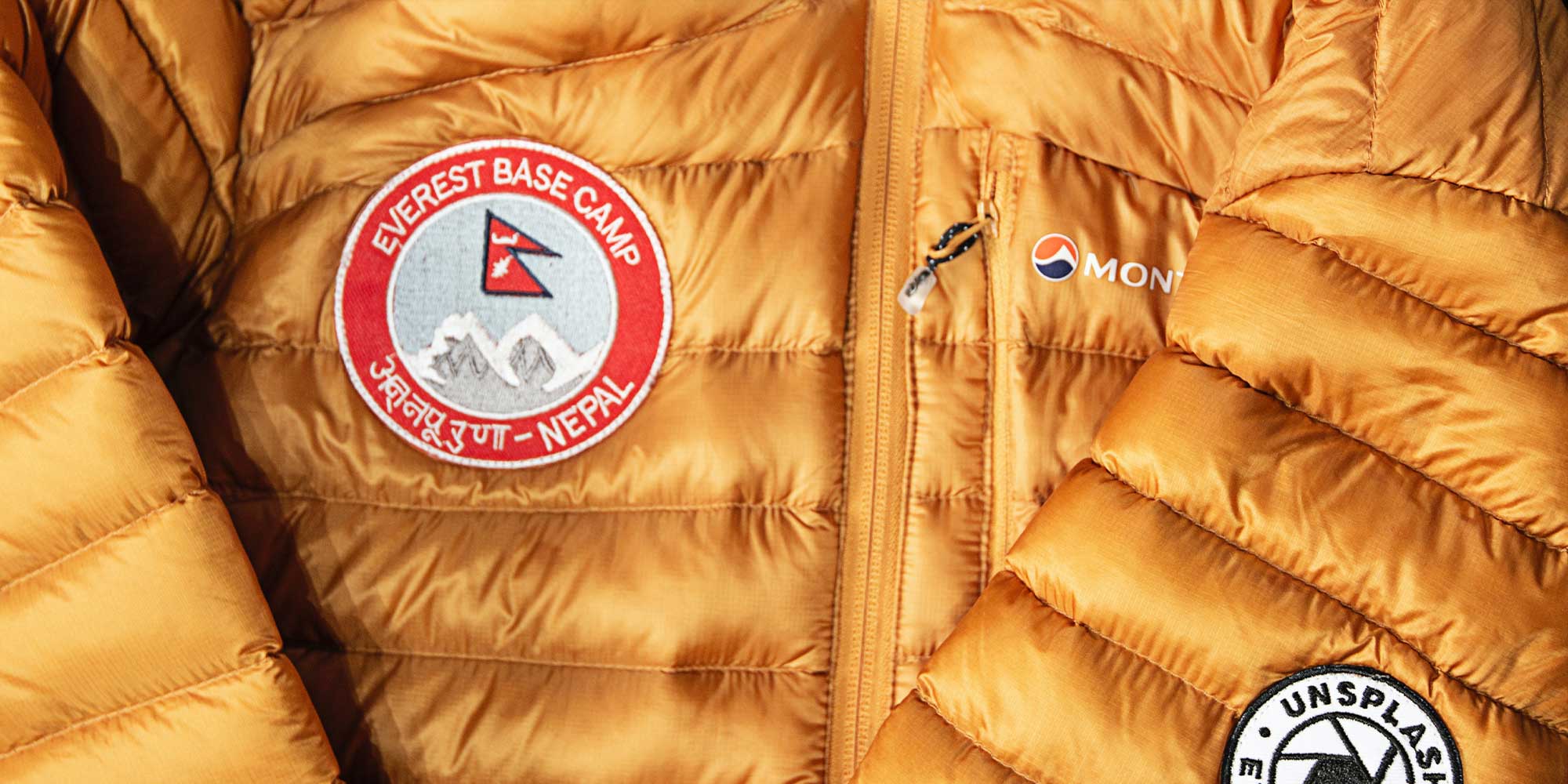
Animal-free down alternatives
The best way to protect ducks and geese from harm is to choose animal-free alternatives to down. In the past decade, alternatives have become much more sustainable, and this innovation is only continuing. Some of the most sustainable alternatives to down include:
- PrimaLoft P.U.R.E
This material is proven to be warmer than down, and unlike down, it is water-resistant. It is made of post-consumer waste plastics, resulting in a 48% emissions reduction during production.
- PrimaLoft Bio
With the same benefits as other PrimaLoft materials, this material is 100% recycled and can completely biodegrade within two years. - Thermore
Certifiably made from 100% recycled, post-consumer PET plastic, this material is durable and long lasting. One of the benefits of using an innovative material like this, rather than feather down, is that it doesn’t stay damp, grow mould, or become heavy like wet down does.
- Recycled materials
While PrimaLoft and Thermore are known as one of the most sustainable and effective recycled alternatives to down, many coat fillings are made from post-consumer waste. Given these fibres are inside of another material and in a garment that isn’t often machine washed, microfibre shedding is less of a concern, though still something to consider.
- Flowerdown
This innovative material is becoming increasingly accessible and is made of wildflowers combined with aerogel and a biopolymer, increasing water repellency and thermal insulation while maintaining biodegradability.

